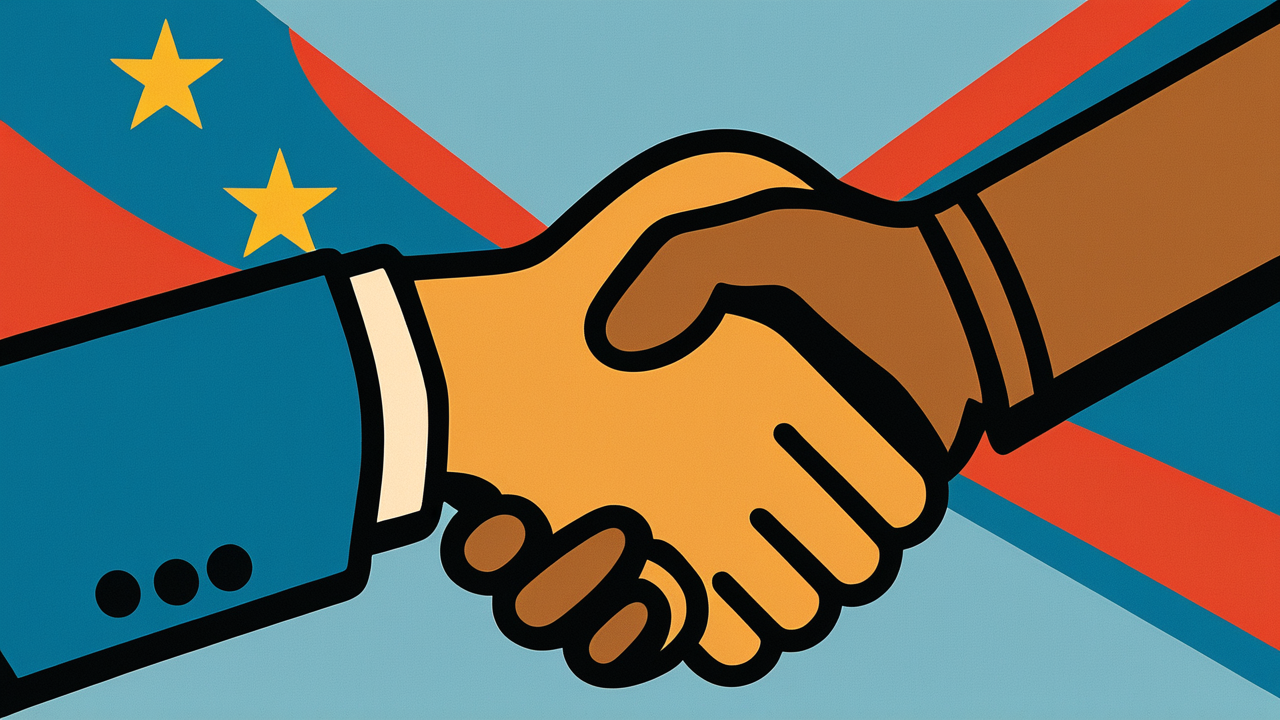[Disclaimer] This article is reconstructed based on information from external sources. Please verify the original source before referring to this content.
News Summary
The following content was published online. A translated summary is presented below. See the source for details.
The United States government announced its support for a new peace agreement signed between the Democratic Republic of Congo (DRC) and representatives of the Congo River Alliance/March 23 Movement (M23), a rebel group operating in eastern Congo. The Declaration of Principles was signed on July 19, 2025, with Qatar serving as the facilitator and the United States observing the process. This agreement represents a significant step toward bringing peace to the Great Lakes region of Africa, which has experienced conflict for many years. The signing builds upon a previous peace agreement between the DRC and Rwanda signed on June 27, 2025, in Washington, D.C. The U.S. Department of State expressed gratitude to Qatar for its leadership in bringing the parties together and encouraged both sides to continue working toward a complete peace agreement that would restore government authority in eastern DRC and allow displaced people to return home safely.
Source: U.S. Department of State
Our Commentary
Background and Context

The Democratic Republic of Congo has faced ongoing conflict in its eastern regions for over two decades. The M23 rebel group, also known as the March 23 Movement, emerged in 2012 when former soldiers mutinied against the Congolese government. The group takes its name from a March 23, 2009 peace agreement that they claimed the government had failed to honor.
The eastern DRC is rich in valuable minerals like gold, tin, and coltan (used in smartphones), which has fueled competition for control of these resources. Multiple armed groups operate in the region, creating instability that has displaced millions of people from their homes. The conflict has deep roots in ethnic tensions and disputes over land rights, made worse by weak government control in remote areas.
Expert Analysis
This Declaration of Principles represents a diplomatic breakthrough after years of failed peace attempts. Qatar’s role as a neutral mediator was crucial, as it has no direct interests in the region and could bring both sides together without bias. The involvement of the United States as an observer adds international weight to the agreement, making it harder for either side to back out.
Peace agreements like this typically start with basic principles before moving to detailed negotiations. The parties likely agreed on fundamental issues such as recognizing each other’s right to exist, committing to non-violence, and establishing a framework for future talks. However, the real test will come when they negotiate specific details like disarmament schedules, integration of rebels into the national army, and power-sharing arrangements.
Additional Data and Fact Reinforcement
According to the United Nations, the conflict in eastern DRC has resulted in over 6 million deaths since 1996, making it one of the deadliest conflicts since World War II. Currently, approximately 7 million people are internally displaced within the DRC, with many living in refugee camps without adequate food, water, or medical care.
The Great Lakes region includes the DRC, Rwanda, Burundi, Uganda, and parts of Tanzania and Kenya. This area has experienced interconnected conflicts since the 1994 Rwandan genocide, when many perpetrators fled into eastern DRC. The region’s instability affects trade, education, and development for over 150 million people.
Related News
This agreement follows closely after the June 27, 2025, peace deal between the DRC and Rwanda signed in Washington, D.C. Rwanda has been accused of supporting the M23 rebels, though it denies these claims. The two agreements together suggest a coordinated international effort to stabilize the region.
The African Union and the East African Community have also been working on peace initiatives in the region. Kenya has deployed peacekeeping troops, while Angola has hosted previous rounds of negotiations. The involvement of Qatar, a Middle Eastern nation, shows how African conflicts are attracting global diplomatic attention.
Summary

This Declaration of Principles offers hope for peace in one of Africa’s most troubled regions. While it’s just the beginning of a long process, the involvement of international partners like Qatar and the United States increases the chances of success. The key challenges ahead include ensuring both sides stick to their commitments, addressing the root causes of conflict, and creating economic opportunities for former fighters. If successful, this agreement could help millions of displaced people return home and begin rebuilding their lives in safety.
Public Reaction
Human rights organizations have cautiously welcomed the agreement while emphasizing the need for accountability for past atrocities. Local communities in eastern DRC have expressed both hope and skepticism, having seen previous peace deals fail. Civil society groups are calling for greater inclusion of women and youth in the peace process, as they make up the majority of conflict victims.
Frequently Asked Questions
Q: What is the M23 rebel group?
A: The M23 (March 23 Movement) is an armed rebel group formed in 2012 by former Congolese soldiers who claimed the government hadn’t honored a 2009 peace agreement. They operate mainly in North Kivu province in eastern DRC.
Q: Why is Qatar involved in African peace talks?
A: Qatar has increasingly positioned itself as a neutral mediator in international conflicts. Its wealth from natural gas exports allows it to host negotiations and provide resources for peace processes without having territorial interests in the conflicts.
Q: What happens next after this Declaration of Principles?
A: The parties will likely enter detailed negotiations on specific issues like disarmament, reintegration of fighters, governance arrangements, and refugee returns. This process could take months or years, with continued international monitoring.


